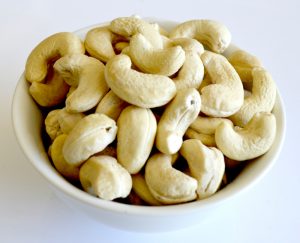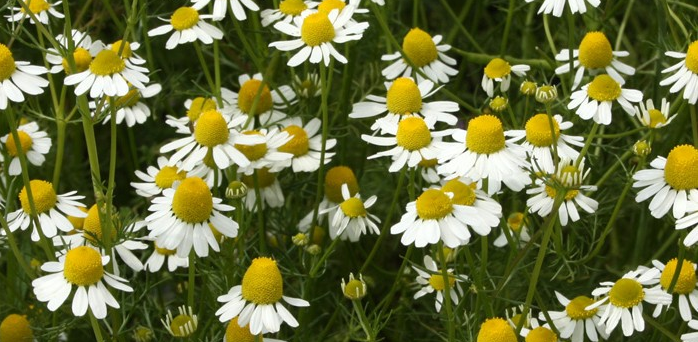Stress! what can you eat to reduce it?
Stress! What can i eat to reduce it?

Colleen Grassnick
an experienced Naturopath that holds two Bachelor degrees in the health sector and has recently moved to Corfu.
Stress – it is this unpleasant experience where the heart is pounding, palms are sweaty, senses are heightened, pupils are constricted, responses are fast and the body is ready to fight or run away from a bear.
A complex network of hormones, neurotransmitters, nerves and impulses called the autonomic nervous system governs our stress response. This system is highly sensitive to the external world as well as to the foods, nutrients and toxins we expose it to. Apart from taking regular breaks, getting adequate sleep and staying true to yourself, how can we positively influence this complex system and support the way our body responds to stress?
Not only did the Greek, Hippocrates, famous for being the ‘Father of Medicine’ say ‘Let food be thy medicine and medicine thy food1 , over the past decades of scientific research, there is a general consensus that the foods we eat have a direct impact on our health. For example, the Mediterranean diet has been praised for its association to longevity, reduced risk of cancer and cardiovascular disease, as well as reduced incidences of Parkinson’s and Alzheimer’s disease.2
Apart from eating ample fresh vegetables, fruit, healthy oils from olives, seeds and fish, here are some functional foods that you can eat to improve not just your general health, but specifically, your stress response.
Cashews
These delicious nuts are rich in magnesium and essential amino acids. Magnesium is a mineral that is vital for over 300 enzymatic reactions in the human body and has been found to aid a stressed body by relaxing muscular tension, reducing blood pressure, regulating nerve conduction and improving energy levels.3a Amino acids found in cashews, like L-tryptophan, are building blocks for neurotransmitters such as dopamine, serotonin and GABA, which stimulate concentrate, elevate mood and promote relaxation.4
Tip: Cashews are best eaten raw and not salted. Aim at eating one handful per day.

Cashews
these delicious nuts are rich in magnesium and essential amino acids.
Legumes
These versatile vegetarian power-foods are packed with nutrients including the B group vitamins including folic acid, iron, zinc, calcium and magnesium.5 In addition, legumes are rich in amino acids, which also aid in balancing blood sugar levels and therefore reducing sugar cravings that many people experience when stressed.
Tip: Avoid canned legumes; instead, buy the dried ones and soak them for minimum 12 hours in water before boiling to make them more digestible. Click here for a table that provides a nutritional breakdown of many legumes.
Chamomile (Matricaria recutita) tea
This aromatic herb is highly medicinal and has been used for centuries, if not several millennia for its nervous system calming attributes. The active ingredients have been found to exhibit sedative action, which can help relieve stress related tension, anxiety, restlessness, insomnia as well as night terrors in children.3c
How to : Make a pot of tea to provide approximately three cups by adding 1.5 heaped tablespoons of dried chamomile flowers into a tea pot; allow the kettle to stop boiling for a few seconds before pouring the water into the pot and cover with a lid immediately to avoid loosing the essential oils. Drink one cup three times daily. The cold tea can be made into delicious herbal iced tea by adding a teaspoon of honey and some fresh lemon juice and mint.
Now that we have looked at foods and drinks that can support us during times of stress, let’s discuss some aspects that can exacerbate stress:
Coffee
Τhis little bean is very rich in caffeine, which is probably the second most widely-used addictive substance on this planet, after sugar. Caffeine increases the release of dopamine, noradrenaline and adrenaline, which is why it may lift mood, increase energy and boost performance.
Yet, regular consumption can exacerbate stressful situations, increase blood pressure, cause dependency and eventually lead to depletion of vital hormones and nutrients6. What is important to note is that caffeine ingestion from coffee beans or tea leafs is different than from cola and energy drinks. These toxic beverages are loaded with sugar, artificial ‘food’ substances like flavours and colours and have zero nutritional or therapeutic value. Green tea on the other hand has very high levels of antioxidants, such as epigallocatechin, which combats free radical damage, supports healthy tissue healing, strengthens blood vessels and connective tissues3d among many more. Coffee beans contain antioxidants including polyphenols and chlorogenic, ferulic, caffeic, and n-coumaric acids which can help reduce the risk of many chronic diseases.7
Tip: Source organic fair trade coffee beans so that you support a sustainable industry and avoid pesticides that would negate any health benefits. Where instant coffee has basically no health benefits, the actual beans have the highest levels of antioxidants, so grind them yourself, it’s worth it! To avoid ill-effects like dependency, adrenal depletion, exacerbation of stress and stomach ulcers, limit your consumption to one cup per day, do not drink it on empty stomach or in the late afternoon and allow yourself a day or two per week with no coffee at all.
Sugar
where do I begin? Not only is it the most addictive substance known to man but when ingested regularly and generously, it has been associated to an array of chronic conditions including some forms of cancer, cardiovascular disease, diabetes type II, metabolic syndrome, non-alcoholic fatty liver8 and the list goes on. Sugar spikes the blood glucose levels very quickly, which will give a momentary boost of energy and feeling of alertness. Yet, the faster this spike goes up, the faster it comes down. This can cause low blood sugar levels (hypoglycaemia), which can make people feel cranky, irritable, unable to think clearly or make rational decisions, and therefore exacerbate stress. The best approach is a low glycaemic index (GI) eating plan, which includes eating wholefoods that slowly increase your blood sugar levels to avoid the peak and the trough.
Note: Click The Glycaemic Index Foundation to find more research, resources and recipes for the low GI approach. Also, click here for an inspirational and informative blog on how to quit sugar, supported by scientific research and delicious recipes that avoid sugar.
There are stressful aspects of life that we can not influence, avoid or change and trying to control them can make things worse. Therefore, we can do our best to manage them by feeding our bodies the best building blocks to respond and cope well with the circumstances. There are incredible medicinal herbs that have been scientifically proven to support the body in times of stress and even reverse adrenal burn out and dysfunction. These herbs include Licorice (Glycyrrhiza glabra), Withania (Withania somnifera), Siberian ginseng (Eleutherococcus senticosus) and Rhodiola (Rhodiola rosae)3. If you would like a holistic, evidence-based approach to stress management, which includes dietary advice, herbal and nutritional medicine, make an appointment with me.
References:
- Hippocrates > Quotes. URL: https://www.goodreads.com/author/quotes/248774.Hippocrates 12.06.16
- Sofi, F. Adherence to Mediterranean diet and health status: meta-analysis. BMJ 11.09.2008; 337. http://www.bmj.com/content/337/bmj.a1344.short
- Braun, L., Cohen, M. Herbs and Natural Supplements – An evidence-based guide. Elsevier Australia, 2005.
- Page 272
- Page 395
- Pages 111-112
- Pages 223-224
- Tortora, G., Derrikson, B. Principles of Anatomy and Physiology, 11thEdition. Biological Sciences Textbooks, USA, 2006.
- Grains and Legumes Nutrition Council. URL: http://www.glnc.org.au/legumes/legumes-nutrition/ 12.06.16
- Prasad, L. Energy Drinks and the Neurophysiological Impact of Caffeine. Frontiers in Neuroscience, 2011. URL: https://www.ncbi.nlm.nih.gov/pmc/articles/PMC3198027/ 16.06.16
- Yashin, A. 2013. Antioxidant and Antiradical Activity of Coffee. Antioxidants. 2013. URL: http://www.mdpi.com/2076-3921/2/4/230/htm12.06.16


